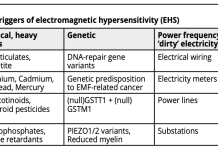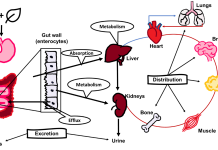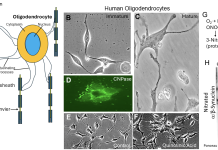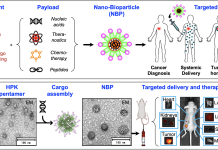Open Access Government produces compelling and informative news, publications, eBooks, and academic research articles for the public and private sector looking at health, diseases & conditions, workplace, research & innovation, digital transformation, government policy, environment, agriculture, energy, transport and more.
Home 2025
Archives
Women and heat stress: A silent risk in the climate-exposed workforce
As global temperatures rise, sex-specific vulnerabilities to extreme heat are emerging as a critical blind spot in occupational health policy. Luana Main and Lilia Convit explain.
Preventing Electromagnetic Hypersensitivity (EHS)
Michael Bevington discusses strategies for recognising and reducing the impact of manufactured electromagnetic fields (EMFs) and radiation, focusing on EHS triggers, risk reduction, and long-term non-thermal guidelines.
The science of gamification: Reimagining biomedical education through gamified learning
Dr Michael J. Dillon and Prof Laura Bowater examine the science of gamification to transform biomedical education through gamified learning.
Developmental biology: A self-propagating wave builds skull bones
Interdisciplinary approaches in developmental biology have revealed how cells build the embryonic bones of the skull vault. Spatial and temporal dynamics are coordinated by cells as they build the extracellular environment, Jacqueline Tabler explains.
Understanding botanical-drug interactions
With a specific focus on pharmacokinetic and pharmacodynamic mechanisms, Dr Erin C Berthold discusses the interactions between botanical and herbal supplements and conventional pharmaceuticals, highlighting the urgent need to examine these interactions for public health and patient safety.
The legacy of bias: Building the foundation for sex and gender-based medicine
Alyson J. McGregor, Associate Dean at the University of South Carolina School of Medicine, highlights the historical bias present in medical research; the exclusion of which has created a significant knowledge gap that impacts the diagnosis and treatment of various health conditions.
iPSCs and NSCs model newborn brain injury
This article discusses research by Dr. Lee J. Martin and his team on HIE, a leading cause of neonatal mortality. They use human induced pluripotent stem cells (iPSCs) and neural stem cells (NSCs) and emphasize the vulnerability of oligodendrocytes, sharing how these cells can accumulate toxic misfolded proteins, potentially causing severe neural damage and long-term cognitive disabilities in affected infants.
The effects of parental imprisonment on children’s education and health
Written by Egil Kjerstad, Research Director at the NORCE Norwegian Research Centre, this article discusses a research project aimed at understanding how parental imprisonment affects children’s education and health.
Youth suicide: An overview
Professor Deborah Winders Davis from the University of Louisville School of Medicine discusses the prevalence, risk factors, and stigma associated with youth mental health and suicide, emphasizing the importance of raising awareness and developing intervention strategies to tackle the critical issues facing young people.
Saving lives from cardiovascular diseases in Africa
Professor Derek Yellon from the Hatter Cardiovascular Institute at University College London and Professor Mpiko Ntsekhe from the University of Cape Town discuss the increasing prevalence of cardiovascular diseases (CVD) in Africa and the associated treatment challenges.
Environmental surveillance as a sentinel for emerging outbreaks: Lessons from mpox in Africa
Here, various academic experts examine research on environmental surveillance as an early warning system for emerging outbreaks, focusing on lessons learned from Mpox in Africa.
Nano-bioparticles: Fighting cancer with targeted nanotherapy
Dr LK Medina-Kauwe developed a bioengineered delivery system to treat resistant and metastatic tumors, highlighting the potential of nano-bioparticles to enhance cancer therapy by targeting specific tumor characteristics and overcoming treatment barriers.
3TR Project: Crossing disease borders to reshape European research
By utilising advanced technologies, the 3TR project aims to transform the understanding and treatment of immune-mediated diseases, with its core principles in precision medicine. Principal investigator, Marta E. Alarcon-Riquelme, explains.
Smarter decisions, better outcomes: How a new molecular test improves patient care
Oliver Bathe, Professor of Surgery and Oncology at the University of Calgary and CEO of Qualisure Diagnostics, examines how a new molecular test can lead to smarter decisions and better patient care outcomes in his third article.
Elimination of cervical cancer: Implementation in action
Professor Karen Canfell and Paul Grogan from the Cancer Elimination Collaboration at the Sydney School of Public Health discuss the WHO strategic plan for elimination of cervical cancer and how a combination of prevention, screening, and treatment can effectively achieve this goal.
Gut microbiome and aging – Unlocking new frontiers in healthy longevity
As the population ages, research into preserving healthy longevity is gaining pace. Christian Brechot highlights the role of the gut microbiome – a complex community of microorganisms within us – in influencing health as we age.
Algae4IBD: A holistic approach to IBD treatment
The Algae4IBD project is exploring the untapped potential of algae and cyanobacteria to manage inflammatory bowel disease (IBD). In this exclusive Q&A, Dr. Dorit Avni, Research Group Leader explains how the team are creating innovative functional foods, aiming to improve quality of life and prolong remission for patients worldwide.
Paternal perinatal mental health: Barriers to help-seeking
Deborah Da Costa, PhD, Associate Professor at the Department of Medicine, McGill University, Scientist at McGill University Health Centre, details the benefits and barriers to paternity leave uptake by fathers following the birth of a child.
Consultations with professional groups to improve filicide intervention
Professor Emeritus AM Thea Brown highlights the importance of education and resources among agencies to recognise warning signs of potential filicide and calls for better intervention strategies to protect children.
Hormonal contraceptives and cognition – time to refocus on women!
Hormonal contraceptives shape women’s brains in ways we still barely understand, and it’s time to study their effects on the cognitive functions that really matter, not just “male-like” performance, says Belinda Pletzer, Professor of Neuroendocrinology, Centre for Cognitive Neuroscience – Paris Lodron University of Salzburg.





















